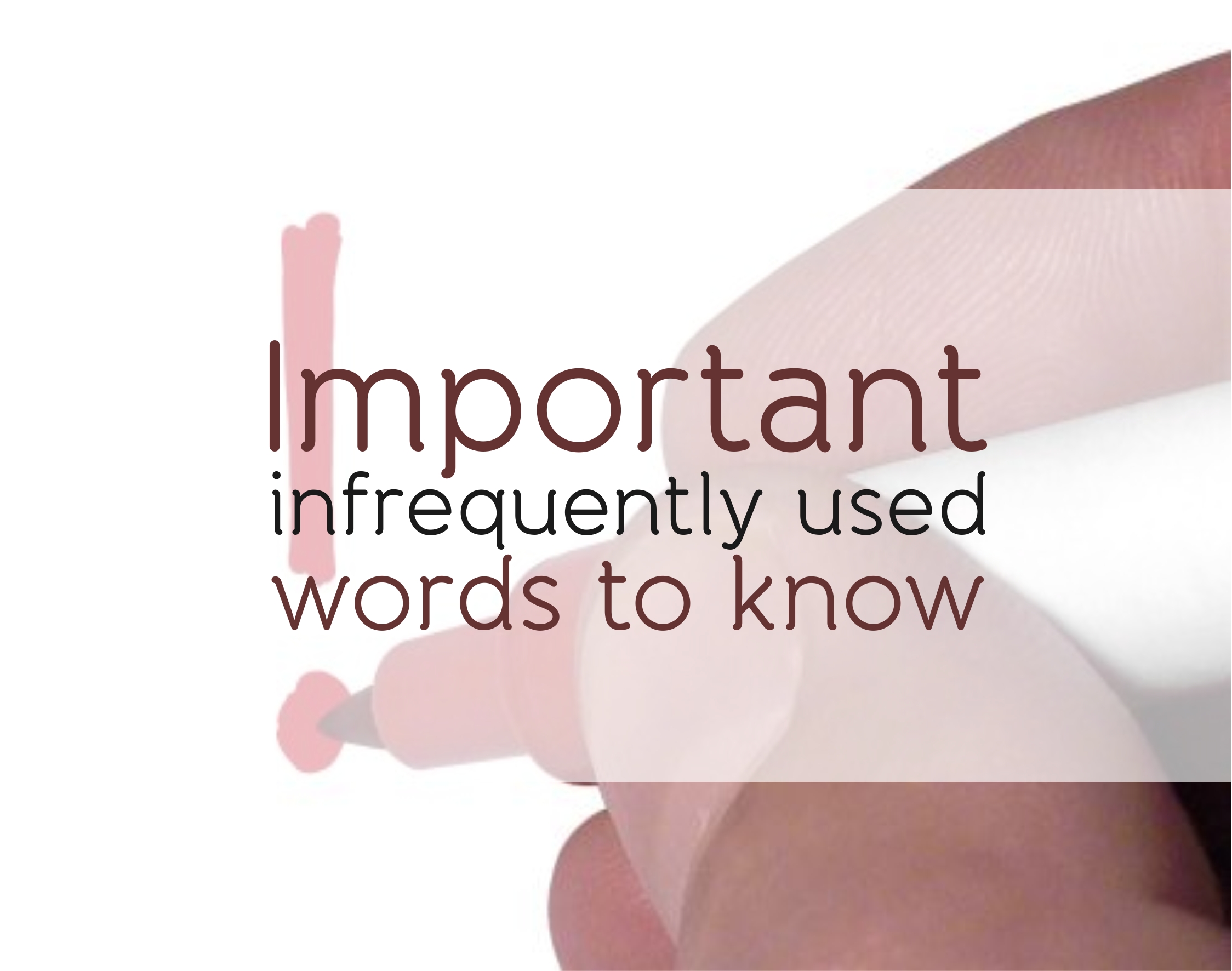Business Writing Truths and Myths

Written by Lynn Gaertner-Johnston, Syntax Training
For the 25 years I have taught classes in business writing, I have heard and rejected a few myths. And I have learned and applied some important truths. Don’t let yourself be fooled by false rules that others may follow. Recognize and apply what makes sense.
Is each of the five statements below a truth, a myth, or a mix of both depending on the situation? You decide. Read More…
How to Spend Less Time Revising

Syntax Training
1. Make a simple plan and follow it. Diving in without a plan may give you a rush of accomplishment. But eventually you will have to slog through the revision stage, forcing your words and ideas into a coherent package.
Decide from the start what you want the message to accomplish. Examples:
- This agenda will help team members prepare for a productive meeting.
- This flyer will motivate parents to attend the open house.
- This email will help the customer complete the necessary paperwork.
Once you know what you want to accomplish, list the questions your message must answer for your readers to achieve your goal. Then write the piece by answering your readers’ questions. Do not include information that your readers would not ask for. If you do, you will write too much and will spend too much time cutting and revising.
For instance, an agenda that helps people prepare for a meeting might answer these questions:
- What are the agenda items?
- Who is responsible for handling each agenda item?
- How much time will we spend on each item?
- What do we want to accomplish with each one: to agree? to decide? to assign?
- How should I prepare?
Too often writers focus on background information, when readers rarely want or need it.
2. Use the power of one. When you write, limit yourself to one: just one topic per paragraph, one idea per sentence. Focusing on just one thing at a time will help you avoid sprawling paragraphs and sentences that you have to rework later.
For example, in a flyer to motivate parents to attend an open house, the answer to each of these questions would be a separate, short chunk of text:
- What’s this about?
- When is the open house?
- Where is it?
- Why should I attend? How will it benefit my family?
- Who will be there?
- Will food be served?
- Do I need to let anyone know that I plan to attend?
- Where can I get more information?
Combining the answers to several questions in one chunk of text will tangle the message. And it will require more time to revise.
Similarly, a sentence with several interwoven ideas will take time to untangle:
This version, with one idea per sentence, is simple and clear:
Even better, this version helps the ideas stand out for quick action:
- Provide a copy of your exempt sales tax document.
- Fill out the top and signature portion of the credit application.
If you limit yourself to one idea per sentence (or bullet), you will write a clear version from the start. The time you spend rewriting will shrink.
3. Recognize that perfection is unattainable—and a waste of time. Unless you write essays, poetry, or other literary works, your audience will not read and savor your every word. Instead, they will skim the agenda, flyer, email, proposal, report, or other communication in search of the information they need. So why strive for perfection when clarity, conciseness, and courtesy are useful, achievable goals?
Avoid pointless revising:
- Don’t fuss over changing “interesting” to “notable” unless “notable” is more accurate.
- Don’t take time to change “Thanks” to “Thank you” unless your reader needs a more formal tone.
- Don’t struggle to eliminate “I am writing to” at the beginning of an email. Yes, your reader knows you are writing. But there is no harm in stating “I am writing to inform you of a change in your interview schedule.”
- Don’t strive to revise just because two sentences in a row begin with “I.” Those two “I”s will not distract your reader. (But starting every paragraph with “I” willdistract your reader, who is probably skimming at the left margin.)
- Don’t take time to apply outdated rules. You can start a sentence with any word you choose. You can end a sentence with a preposition. You can use contractions unless your document must be formal.
When your communication focuses on its goal and answers your readers’ questions in clear sentences and paragraphs, you are finished revising. Just run your grammar and spelling checker; then proofread. Hurray! The piece is done! Now move on to the next one.
When to Write a Memo, Not an Email

These days we have replaced memos with rampant emails. We have pushed email too far, expecting it to communicate long, complex, important messages to everyone. Our inboxes are stuffed, and those essential messages are not being read.
It’s time to take the pressure off emails. If you want people to read your important ideas and information, you need to revive the memo. Consider these suggestions:
1. Recognize the best uses of email. Emails win for fast, temporary communications that readers quickly read, act on, and delete. Emails excel at succinct requests and replies, speedy updates, short reminders or check-ins, time-sensitive announcements, and similar short-lived messages. They are perfect for briefly introducing attachments such as memos.
2. Use a memo when you are writing a message built to last. If your communication is a detailed proposal, a significant report, a serious recommendation, a technical explanation, meeting minutes, a new policy, or something else that readers will consult more than once, make it a memo. Your readers will be able to save the document, read it, and find it when they need the information again.
3. Use a memo when formatting matters. If the piece contains bullet points, bold headings, columns, tables, a graph, or even a good balance of white space, a memo will help you retain that formatting. To guarantee your formatting, save the memo as a PDF. If your audience reads emails on their phones, an attachment may be the only way to preserve the formatting you intend.
5. To communicate formally, choose a memo. Memos provide a place at the top of the message to insert the company name and logo and the professional titles of senders and receivers. Those inclusions make the message appear more formal. Also, a well-formatted message conveys significance.
6. When you worry that your message is too long as an email, write a memo. Impossibly long emails often result when you try to incorporate important, lasting information in them. But memos work best when people will return to your message for information. (See Point 2.) For instance, if you are communicating the details of the four-stage construction project, use a memo. To convey pros and cons of a major purchasing decision, lay out your research in a memo.
Attach your memo to an email that gives your readers a brief summary of the memo contents. For some readers, that summary will be enough. Those who need the information will read and save the memo.
7. To communicate complex information to people outside your organization (clients, citizens, etc.), consider a memo or a letter. A letter is the traditional format for external correspondence, especially to people you serve, such as customers and patients. But you can choose a memo to write to vendors, consultants, members, clients, professional peers, and others who collaborate with you to get results.
8. To send your memo, simply attach it to a brief email. Or send a printed copy through interoffice mail if that approach makes sense.
I have attached a sample memo to illustrate a standard format.
The memo is no dinosaur. Use it for your significant communications, and your messages will come across as professional, relevant, and of lasting importance.
The Politically Incorrect Etymologies of 10 Words and Phrases
At various moments in its life, a word will hop languages, change meanings, travel through sinister moments and land in pleasant ones. But no matter how many times it’s superimposed, and how far it gets from its original source, a word doesn’t let go of its memories easily. Here are 11 modern English words with socially insensitive origins.
1. Hysteria (n.) – a wild, irrational eruption of fear or emotion
Hysteria begins in the womb, or so thought the medical scholars of the 1610s, who named the condition after the Latin hystericus, meaning “of the womb.” Those who’ve studied the Victorian era, or read The Awakening in high school, may know that the go-to prognosis of the time for just about every female’s symptom from the occasional hissy fit to chronic seizures was a pesky wayfaring uterus. The condition was thought to be caused by sexual frustration and cured by intercourse or pelvic massage, the latter often performed by physicians and midwives. When doctors finally got fed up with the tedious task in the late 19th century, the personal vibrator was created to take their place. Read More…
Lost in Long Sentences?

When reading essays, books, and novels, many people enjoy traveling through long, complex sentences with twists and turns that lead to a satisfying end. But in business writing, readers want a short, clear path to understanding. Follow the four tips below to edit long sentences.
1. Include just one idea per sentence. When sentences have several ideas, readers need to figure out the relationship between the ideas. They need to suspend their understanding until they get to the period (full stop). In contrast, readers can quickly grasp each one-idea sentence and move on to the next.
The sentence below packs in three ideas. The punctuation makes is easy to recognize them.
Test Yourself Number 1: Revise this three-idea sentence, whose length makes readers move slowly:
Our credit department has requested that you provide a copy of your exempt sales tax document and that you fill out the top and signature portion of the credit application just for assurance that we have the pertinent contact information correct.Revise the sentence to communicate just one idea per sentence. After you have tried, you can check my revision. It appears at the end of this article.
In baseball, the windup is the pitcher’s actions before releasing the ball. Although important to the pitcher, the windup can distract the batter. The same is true of readers: If you begin a sentence with a fancy windup, you may lose your readers before releasing your main idea. Instead, start with your subject.This sentence has a dizzying windup, which makes it too long and complicated:
Test Yourself Number 2: Start with the subject rather than the long windup in this sentence, so readers do not struggle to understand its meaning:By keeping the three critical success factors in mind and talking with your unit manager or your peer coach whenever you find yourself struggling with an employee issue, you should have the greatest opportunity for success as a new supervisor.
My revision appears at the end of the article.
Your revision might look like mine: The navigation panel on the left side of the screen is the same for all contractors. It helps them navigate through the site to find what they need quickly.
Test Yourself Number 3: Break up this long sentence by inserting a period and replacing and. Then compare your revision with mine, which appears at the end of the article.
Recently there have been several calls and emails from individuals who are using an MS Excel version dated earlier than 2007 and are not able to save their changes based on the instructions provided in the guidelines.
4. Do not let a long list transform your sentence into a solid wall of text. Often you need to include a list in your writing. But a sentence burdened with a long list can become a blur to your reader. If that happens, your reader will not see any of the important information in your list. The solution is to break up the long, heavy sentence into bullet points or short sentences that keep your reader’s attention.
How would you revise this list-heavy sentence?
- Counseling managers on issues ranging from major incidents to employee communications and community relations.
- Representing the company with various groups.
- Supporting the needs of individual plants.
- Managing strategic media opportunities and crisis communications.
- Placing community advertising.
- Publicizing company efforts in environmental stewardship.
Test Yourself Number 4: Restructure this long sentence so that each part stands out:If new information concerning the case should come to your attention, if you should leave the area for more than a few days, or if you should change your address or telephone number, please advise Marie Smith or your insurance agent immediately.
Solution to Number 1:Our credit department has requested that you provide a copy of your exempt sales tax document. Also, please fill out the top and signature portion of the credit application. This step is just for assurance that we have the pertinent contact information correct.Solution to Number 2:You should have the greatest opportunity for success as a new supervisor if you do these two things: Keep the three critical success factors in mind. Talk with your unit manager or your peer coach whenever you find yourself struggling with an employee issue.Solution to Number 3:Recently there have been several calls and emails from individuals who are using an MS Excel version dated earlier than 2007. They are not able to save their changes based on the instructions provided in the guidelines.Solution to Number 4:Please immediately advise Marie Smith or your insurance agent if any of these occurs:
-
New information concerning the case comes to your attention.
-
You leave the area for more than a few days.
-
You change your address or telephone number.
The 100 Most Beautiful Words in English

| Ailurophile | A cat-lover. |
| Assemblage | A gathering. |
| Becoming | Attractive. |
| Beleaguer | To exhaust with attacks. |
| Brood | To think alone. |
| Bucolic | In a lovely rural setting. |
| Bungalow | A small, cozy cottage. |
| Chatoyant | Like a cat’s eye. |
| Comely | Attractive. |
| Conflate | To blend together. |
| Cynosure | A focal point of admiration. |
| Dalliance | A brief love affair. |
| Demesne | Dominion, territory. |
| Demure | Shy and reserved. |
| Denouement | The resolution of a mystery. |
| Desuetude | Disuse. |
| Desultory | Slow, sluggish. |
| Diaphanous | Filmy. |
| Dissemble | Deceive. |
| Dulcet | Sweet, sugary. |
| Ebullience | Bubbling enthusiasm. |
| Effervescent | Bubbly. |
| Efflorescence | Flowering, blooming. |
| Elision | Dropping a sound or syllable in a word. |
| Elixir | A good potion. |
| Eloquence | Beauty and persuasion in speech. |
| Embrocation | Rubbing on a lotion. |
| Emollient | A softener. |
| Ephemeral | Short-lived. |
| Epiphany | A sudden revelation. |
| Erstwhile | At one time, for a time. |
| Ethereal | Gaseous, invisible but detectable. |
| Evanescent | Vanishing quickly, lasting a very short time. |
| Evocative | Suggestive. |
| Fetching | Pretty. |
| Felicity | Pleasantness. |
| Forbearance | Withholding response to provocation. |
| Fugacious | Fleeting. |
| Furtive | Shifty, sneaky. |
| Gambol | To skip or leap about joyfully. |
| Glamour | Beauty. |
| Gossamer | The finest piece of thread, a spider’s silk |
| Halcyon | Happy, sunny, care-free. |
| Harbinger | Messenger with news of the future. |
| Imbrication | Overlapping and forming a regular pattern. |
| Imbroglio | An altercation or complicated situation. |
| Imbue | To infuse, instill. |
| Incipient | Beginning, in an early stage. |
| Ineffable | Unutterable, inexpressible. |
| Ingénue | A naïve young woman. |
| Inglenook | A cozy nook by the hearth. |
| Insouciance | Blithe nonchalance. |
| Inure | To become jaded. |
| Labyrinthine | Twisting and turning. |
| Lagniappe | A special kind of gift. |
| Lagoon | A small gulf or inlet. |
| Languor | Listlessness, inactivity. |
| Lassitude | Weariness, listlessness. |
| Leisure | Free time. |
| Lilt | To move musically or lively. |
| Lissome | Slender and graceful. |
| Lithe | Slender and flexible. |
| Love | Deep affection. |
| Mellifluous | Sweet sounding. |
| Moiety | One of two equal parts. |
| Mondegreen | A slip of the ear. |
| Murmurous | Murmuring. |
| Nemesis | An unconquerable archenemy. |
| Offing | The sea between the horizon and the offshore. |
| Onomatopoeia | A word that sounds like its meaning. |
| Opulent | Lush, luxuriant. |
| Palimpsest | A manuscript written over earlier ones. |
| Panacea | A solution for all problems |
| Panoply | A complete set. |
| Pastiche | An art work combining materials from various sources. |
| Penumbra | A half-shadow. |
| Petrichor | The smell of earth after rain. |
| Plethora | A large quantity. |
| Propinquity | An inclination. |
| Pyrrhic | Successful with heavy losses. |
| Quintessential | Most essential. |
| Ratatouille | A spicy French stew. |
| Ravel | To knit or unknit. |
| Redolent | Fragrant. |
| Riparian | By the bank of a stream. |
| Ripple | A very small wave. |
| Scintilla | A spark or very small thing. |
| Sempiternal | Eternal. |
| Seraglio | Rich, luxurious oriental palace or harem. |
| Serendipity | Finding something nice while looking for something else. |
| Summery | Light, delicate or warm and sunny. |
| Sumptuous | Lush, luxurious. |
| Surreptitious | Secretive, sneaky. |
| Susquehanna | A river in Pennsylvania. |
| Susurrous | Whispering, hissing. |
| Talisman | A good luck charm. |
| Tintinnabulation | Tinkling. |
| Umbrella | Protection from sun or rain. |
| Untoward | Unseemly, inappropriate. |
| Vestigial | In trace amounts. |
| Wafture | Waving. |
| Wherewithal | The means. |
| Woebegone | Sorrowful, downcast. |
The 100 Funniest Words in English

| Abibliophobia | The fear of running out of reading material. |
| Absquatulate | To leave or abscond with something. |
| Allegator | Some who alleges. |
| Anencephalous | Lacking a brain. |
| Argle-bargle | A loud row or quarrel. |
| Batrachomyomachy | Making a mountain out of a molehill. |
| Billingsgate | Loud, raucous profanity. |
| Bloviate | To speak pompously or brag. |
| Blunderbuss | A gun with a flared muzzle or disorganized activity. |
| Borborygm | A rumbling of the stomach. |
| Boustrophedon | A back and forth pattern. |
| Bowyang | A strap that holds the pants legs in place. |
| Brouhaha | An uproar. |
| Bumbershoot | An umbrella. |
| Callipygian | Having an attractive rear end or nice buns. |
| Canoodle | To hug and kiss. |
| Cantankerous | Testy, grumpy. |
| Catercornered | Diagonal(ly). |
| Cockalorum | A small, haughty man. |
| Cockamamie | Absurd, outlandish. |
| Codswallop | Nonsense, balderdash. |
| Collop | A slice of meat or fold of flab. |
| Collywobbles | Butterflies in the stomach. |
| Comeuppance | Just reward, just deserts. |
| Crapulence | Discomfort from eating or drinking too much. |
| Crudivore | An eater of raw food. |
| Discombobulate | To confuse. |
| Donnybrook | An melee, a riot. |
| Doozy | Something really great. |
| Dudgeon | A bad mood, a huff. |
| Ecdysiast | An exotic dancer, a stripper. |
| Eructation | A burp, belch. |
| Fard | Face-paint, makeup. |
| Fartlek | An athletic training regime. |
| Fatuous | Unconsciously foolish. |
| Filibuster | Refusal to give up the floor in a debate to prevent a vote. |
| Firkin | A quarter barrel or small cask. |
| Flibbertigibbet | Nonsense, balderdash. |
| Flummox | To exasperate. |
| Folderol | Nonsense. |
| Formication | The sense of ants crawling on your skin. |
| Fuddy-duddy | An old-fashioned, mild-mannered person. |
| Furbelow | A fringe or ruffle. |
| Furphy | A portable water-container. |
| Gaberlunzie | A wandering beggar. |
| Gardyloo! | A warning shouted before throwing water from above. |
| Gastromancy | Telling fortune from the rumblings of the stomach. |
| Gazump | To buy something already promised to someone else. |
| Gobbledygook | Nonsense, balderdash. |
| Gobemouche | A highly gullible person. |
| Godwottery | Nonsense, balderdash. |
| Gongoozle | To stare at, kibitz. |
| Gonzo | Far-out journalism. |
| Goombah | An older friend who protects you. |
| Hemidemisemiquaver | A musical timing of 1/64. |
| Hobbledehoy | An awkward or ill-mannered young boy. |
| Hocus-pocus | Deceitful sleight of hand. |
| Hoosegow | A jail or prison. |
| Hootenanny | A country or folk music get-together. |
| Jackanapes | A rapscallion, hooligan. |
| Kerfuffle | Nonsense, balderdash. |
| Klutz | An awkward, stupid person. |
| La-di-da | An interjection indicating that something is pretentious. |
| Lagopodous | Like a rabbit’s foot. |
| Lickety-split | As fast as possible. |
| Lickspittle | A servile person, a toady. |
| Logorrhea | Loquaciousness, talkativeness. |
| Lollygag | To move slowly, fall behind. |
| Malarkey | Nonsense, balderdash. |
| Maverick | A loner, someone outside the box. |
| Mollycoddle | To treat too leniently. |
| Mugwump | An independent politician who does not follow any party. |
| Mumpsimus | An outdated and unreasonable position on an issue. |
| Namby-pamby | Weak, with no backbone. |
| Nincompoop | A foolish person. |
| Oocephalus | An egghead. |
| Ornery | Mean, nasty, grumpy. |
| Pandiculation | A full body stretch. |
| Panjandrum | Someone who thinks himself high and mighty. |
| Pettifogger | A person who tries to befuddle others with his speech. |
| Pratfall | A fall on one’s rear. |
| Quean | A disreputable woman. |
| Rambunctious | Aggressive, hard to control. |
| Ranivorous | Frog-eating |
| Rigmarole | Nonsense, unnecessary complexity. |
| Shenanigan | A prank, mischief. |
| Sialoquent | Spitting while speaking. |
| Skedaddle | To hurry somewhere. |
| Skullduggery | No good, underhanded dealing. |
| Slangwhanger | A loud abusive speaker or obnoxious writer. |
| Smellfungus | A perpetual pessimist. |
| Snickersnee | A long knife. |
| Snollygoster | A person who can’t be trusted. |
| Snool | A servile person. |
| Tatterdemalion | A child in rags. |
| Troglodyte | Someone or something that lives in a cave. |
| Turdiform | Having the form of a lark. |
| Unremacadamized | Having not been repaved with macadam. |
| Vomitory | An exit or outlet. |
| Wabbit | Exhausted, tired, worn out. |
| Widdershins | In a contrary or counterclockwise direction. |
| Yahoo | A rube, a country bumpkin. |
| @ | The “at” sign. |























